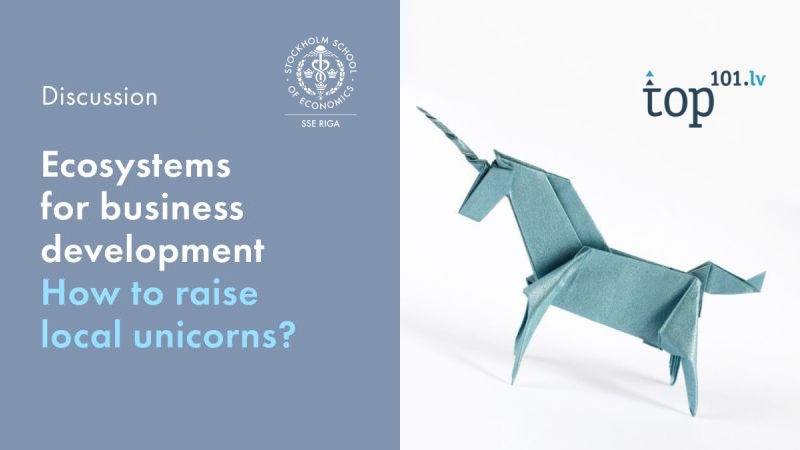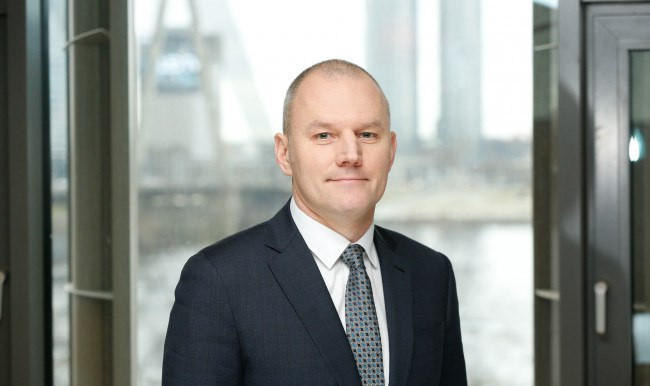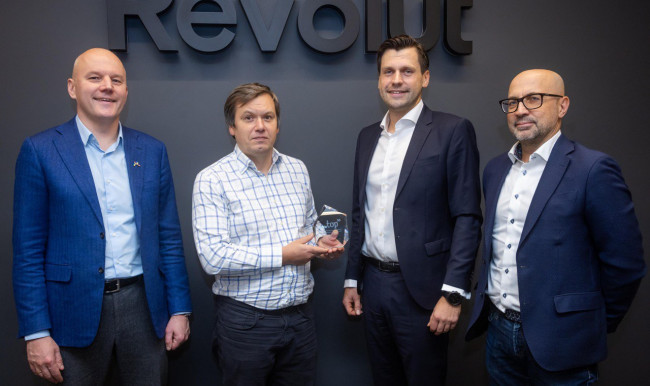
TOP101 Panel Discussion: How to Raise Local Unicorns
On March 29th, 2022, in the walls of The Stockholm School of Economics in Riga took place the first on-site open event since the Covid-19 pandemic started. Together with TOP101.lv, produced by Prudentia, NASDAQ Riga/Tallinn and the SSE Riga administration, the TOP101 Panel Discussion on the topic of Ecosystems for Business Development was organized.
During that evening, a diverse cluster of Baltic entrepreneurs and executives were seen in the panel: Andris K. Bērziņš (Managing Partner at Change Ventures), Indars Aščuks (CEO at Nasdaq CSD), Beate Krauze-Čebotare (General manager, Board member at Omniva Latvija), Henrik Karmo (Member of the Management Board, Co-Founder at IPAS INDEXO), Andris Bite (CEO, Co-owner at Karavela), Dāvis Vasiļevskis (International Business Development Lead at Printful), Indrek Uudeküll (Partner, Member of the Management Board at Prudentia Tallinn). The whole event was moderated by the experienced financier and businessman Ģirts Rungainis (Founding Partner, Member of the Council at Prudentia).
The main mission of the event was to uncover and popularize the hidden problems of building successful entrepreneurial stories through different stages of the businesses. As for the apogee of the event the rhetoric question on “How to raise local unicorns?” was put.
We already mentioned that the event was segmented by the different development and fundraising stages of the companies: seed-stage - idea origination and first steps of the development; funding-stage - aggregating the financing for the scaling opportunities; expansion-stage - going global by opening the new markets. The key thoughts through each discussed stage are summarized below.
From the seed-stage part, the key takeaway was mentioned by Andris Bite, without his quote the further processes equal to zero: “as a (Baltic) society, we need to get rid of the fear to fail”. By overcoming this fear, new horizons will open, and, thus, Andris K. Bērziņš Baltic “snowball of the entrepreneurial spirit” will become bigger over time.
Going next to the funding-stage, the current financing situation provides enormous opportunities for funding through the angel-investors or different types of funds. Unfortunately, Beate Krauze-Čebotare underlines the problem of Latvian entrepreneurs in comparison with Estonian colleagues: “Latvian startups tend to wait for quick gains or take dividends at the first opportunity rather to invest in the development. From Estonian perspective, companies are focused on long-term growth”. One of the hypotheses to that is the (business) cultural differences between two neighboring countries, but about that a bit later.
For the subsequent expansion-stage – the basic idea for the upcoming unicorns comes from the first section of the discussion by Andris K. Bērziņš that the entrepreneurs must think about building a global business from day one. Dāvis Vasiļevskis, through Printful’s experience, suggests to the new businesses mainly to focus on big markets or to the places where the business can scale and grow.
Despite the strict segmentation of the discussion, several ideas were common in each part. In funding-stage paragraph, we have mentioned the cultural differences of all three Baltic countries. Under the definition of the “cultural differences”, here we are also putting the culture of educating people. Indrek Uudeküll presents his observation that Estonian people reinvest more knowledge back into society in comparison to the other two Baltic countries. In our opinion, it is due to the differences in provided systems of the business environments and how “sexy” is to do business in each country. With lack in even one of these factors, no or slow growth will be seen, thus, no desired reinvestments of knowledge and resources will be provided. In this case, it is simple causation!
“In my opinion, the incentive for the further development of entrepreneurship in our region should be the growth of the ambitions of entrepreneurs to go to the foreign markets and their ability to think bigger. Mainly, this growth depends on - greater state support, the development of the educational sector especially in the business field and its popularization, and on growths’ own subsequent effect in previous periods. Summing all that up, in the proper scenario the positive results are irreversible!” concludes event co-organizer and Analyst at Prudentia Aleksandrs Sverdlovs.


